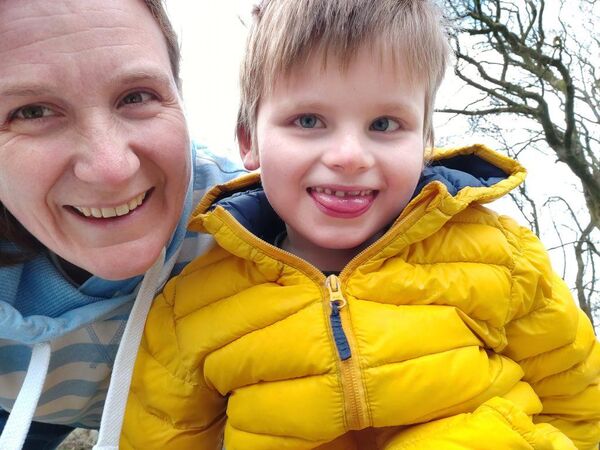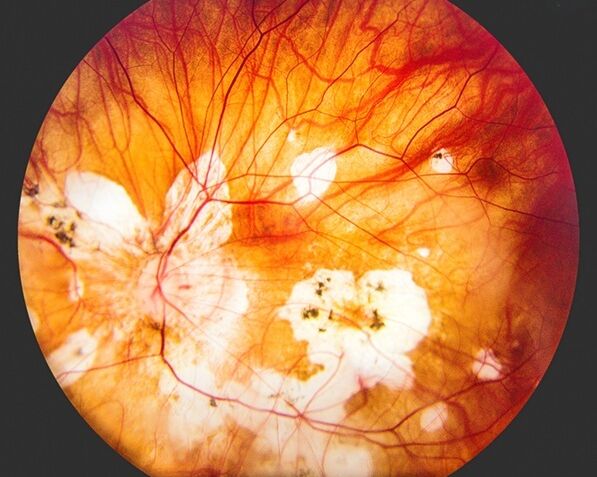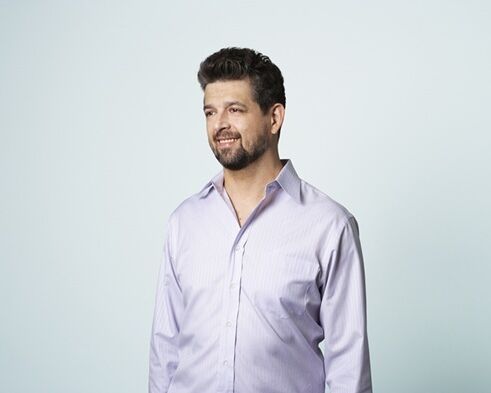A Shared Journey of Discovery – Jillian Hastings Ward reflects on the fifth anniversary of Genomics England’s Participant Panel

"We’d love you to join the Participant Panel! Can you come to the first meeting, on Monday?"
So began a personal adventure, better than I ever imagined, with a group of people who continue to inspire me on a weekly basis. From a genetics appointment in London, to addressing conference audiences in San Diego and Melbourne; from parenting a severely disabled child with an undiagnosed condition, to helping establish a global community of families like us. From being the first family diagnosed with a GRIN1 gene variant in the NHS, to helping with the rollout of genomic medicine across England.
By the time I got involved in in the spring of 2016, Genomics England had been established for three years. They had been focusing on developing the technical systems that would make the 100,000 Genomes Project a reality but now NHS clinics across the country were beginning to recruit patients with rare conditions and some people with cancers. They were inviting them to have their genomes sequenced and analysed by Genomics England, and to make their whole genome sequence and information about their health available for research within the Genomics England data bank. At the time, this was not part of routine NHS care so we were stepping into an unknown research project, run jointly by Genomics England and NHS England. We needed to trust that our data would be stored securely, used wisely, and we hoped that we – or people like us – would get answers in due course. One way that the project team wanted to earn and retain our trust was to convene a Participant Panel, which would bring ‘lived experience’ to discussions about how our data would be used, and by whom.
That Monday, 18th April, around a dozen of us gathered around a very shiny table in a grand room just off Charterhouse Square in London. We’d all had our whole genomes sequenced, or looked after someone who had; we’d all sat in the genetics clinic, wondering whether these blood samples might explain the health conditions that affected our daily lives. Some of us were grieving lost family members and hoping that similar tragedies could be avoided in the future. We all believed that Genomics England and the NHS, in designing and delivering the 100,000 Genomes Project, were doing something new and exciting and we wanted to help shape this as it grew.
From the outset, we were invited to share our ideas and ambitions for the Participant Panel, working closely with senior leaders at Genomics England to establish a strong and trusted relationship; one that gives us the freedom to challenge them, and the confidence to know that our views are heard and acted upon. We can invite anyone from Genomics England to come to our quarterly meetings and explain their work to us, and can report any significant concerns to the Chair, Baroness Blackwood, if necessary. We also send representatives to sit on several other decision-making bodies within the organisation.
Our original Panel has grown from a dozen to around 25 members from across England. Many of us have strong connections to wider patient communities and/or support groups, which adds depth to the views around the table. Some of us have had new diagnoses from the project. Many have not, yet; a pattern reflected across the wider participant community.
We regularly receive requests for advice and invitations to speak to external audiences or Genomics England staff. We contribute to national genomics policy development and are currently helping to oversee a project, commissioned by Genomics England, to explore public attitudes towards the use of whole genome sequencing in newborn screening. We’ve also been able to share the benefit of the Panel’s experience with the NHS, helping to design their patient and public involvement approach for the new Genomic Medicine Service.
By the end of 2019, Genomics England had returned an initial finding for nearly every family to their colleagues in the NHS, who are responsible for verifying and reporting these back to patients themselves. This has resulted in a new diagnosis for around 25% of the families. This was a very important milestone but it is definitely not ‘the end’ for our participants.
We make it our mission to keep reminding everybody that Genomics England’s databank, now known as the National Genomic Research Library, will continue to grow in perpetuity – along with the opportunities for further diagnostic discoveries. This should be a gift that keeps on giving, and we are here to make sure of that.
With Genomics England’s involvement in COVID studies and the mainstreaming of genomics into routine NHS care, the population in the Library will continue to grow and diversify, and we are looking forward to welcoming new Panel members from these cohorts over the coming year. If you would like to apply, please drop us a line at [email protected] with ‘Participant Panel’ as the message title.
Jillian Hastings Ward is the independent Chair of the Participant Panel at Genomics England
Acknowledgments: the Panel would not be in the great shape it is today without the strong foundations laid by our original Chair, Ed Sherley-Price, and the talents, commitment and enthusiasm of everyone who has joined us along the way. We’re very grateful for the contributions of past members, especially Julie Bartlett who we lost in 2020, and for the continuing support of Sue Hill and the Genomics Unit at NHS England, and Mark Caulfield, Vivienne Parry, Yufan Chen and their colleagues at Genomics England.


